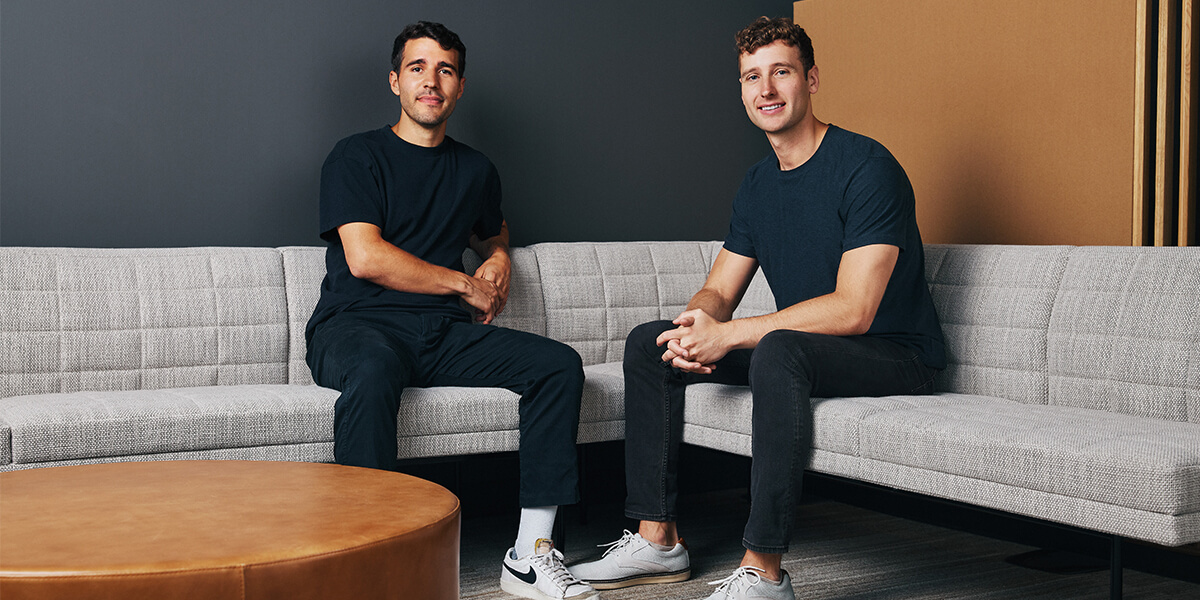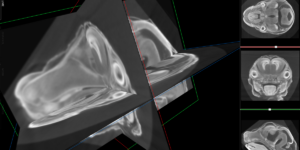
USC alumni Gabriel Pereyra and Winston Weinberg co-founded Harvey.ai, a leader in AI automation for the legal profession. Image courtesy of Harvey.ai
Any venture capitalist worth their salt will tell you. Keep a clear head, distrust the hype, focus on the risk and return.
Since 2021, that mentality has led to a significant downturn in AI startups investments, contrary to what you might expect given the media frenzy around AI’s potential impact. After having received initial funding, many companies struggled to establish a foothold in the marketplace and VC’s just weren’t seeing the return they needed.
“Although there has been huge interest in generative AI startups, the reality is that very few companies have found product market fit beyond pilot scale demonstrations,” explained Ralph Lin, startup founder and managing director of the USC Viterbi Office of Technology Innovation and Entrepreneurship (TIE). “Engineer-entrepreneurs are naturally suited to address these challenges positioned directly at the intersection of technology and business.”
We’re now witnessing an uptick – from April to June, investors poured $27.1 billion into US-based AI startups, accounting for nearly half of all startup funding in that period. Several companies founded by USC Viterbi faculty and alumni are riding the wave, successfully navigating the ups and downs of the AI investment landscape over the last year.
Harvey, co-founded by Winston Weinberg (JD ’16), a graduate of USC Gould School of Law, and Gabriel Pereyra (BS ’16), a USC Viterbi computer science graduate, recently secured a $100m raise. The company specializes in AI automation for the legal profession, creating custom LLMs trained on complex research and drafting tasks.
Physical Intelligence, helmed by CEO Karol Hausman (PhD ’18), raised $70m in seed funding; the company develops foundation models and learning algorithms that can power a wide range of robots and physically actuated devices.
GrayMatter Robotics, which produces AI enhanced industrial robots designed to assist humans in tedious and ergonomically challenging tasks, secured $45m Series B funding. The USC Viterbi-dominated team includes co-founders Ariyan Kabir (PhD ’19), AME research associate Brual Shah and S.K. Gupta, Smith International Professor in Mechanical Engineering and director of the USC Center for Advanced Manufacturing.
Dani Yogatama, an associate professor in the Thomas Lord Department of Computer Science at USC, saw an influx of $60m Series A funding for his multimodal generative AI company, Reka, where he serves as CEO.
Founded by computer scientist Varun Badhwar (BS’ 2006), the software supply chain security platform Endor Labs raised $70m in Series A funding.
The machine learning operations platform, FedML, raised $17.5m in seed funding. FedML’s CEO and co-founder is Salman Avestimehr, Dean’s Professor of Electrical and Computer Engineering at USC. Avestimehr is also the mind behind the USC-Amazon Center on Secure and Trusted Machine Learning, and director of the Information Theory and Machine Learning (vITAL) research lab.
It’s not only the tech startups that are maximizing the investment potential of AI. USC has long history of training engineers to become leaders in the space industry, and the new space economy is primed for startups.
Founded by former SpaceX engineers and USC graduates Shilpa Gollapudi (MSc ’15) and Austin Spiegel (BS ’15), Sift raised $17.5m in Series A funding. The company aims to simplify telemetry processes to optimize the recording, visualization and interpretation of machine data.
Meanwhile, Ursa Major has raised $138m in Series D funding to develop their 3D-printed rocket engines. Founded by Joe Laurienti (BS ’11) and employing multiple USC alumni, the company is in the race alongside Relativity Space, who launched the first 3D-printed rocket. It’s worth noting that the founders of Relativity Space, Tim Ellis (BS ’12, MS ’13) and Jordan Noone (BS ’14) gained their training at the USC Rocket Propulsion Laboratory (RPL).
That’s just a sampling of a stack of successful funding pitches over the last year. What the majority of these companies share is an emphasis on foundational AI models – instead of simply building upon existing models, they’re innovating from the ground up.
As a result, USC AI startup founders are meeting investors at the same level. As the saying goes, “eat roots, not shoots.” In other words, focus on the technology that has the potential to change the direction of how AI models develop, and your investment is likely to support a synergetic network of innovation as opposed to fizzling out like a short-lived shoot.
USC provides a strong precedent when it comes to looking beyond surface-level innovation: the university has a history of incubating “behind the scenes” fundamental research that has revolutionized the development of AI technology. Not least, the publication of the seminal paper “Attention is All You Need,” credited with introducing the transformer architecture that sparked unprecedented advances in natural language processing – paving the way for Chat GPT alongside other innovations in deep learning and open-source distributed training.
As it happens, the USC duo who produced the paper, Ashish Vaswani (PhD ’14) and Niki Parmar (MS ’15), have now secured $56m in Series A funding for their enterprise AI company, Essential.
All too often, the mindsets of academic research and entrepreneurship are considered worlds apart. One, focused the minutiae of fundamental questions – the other, extrapolating those findings for globally relevant application. In the context of engineering, however, the two come together.
“We’re proud to continue the tradition of innovation at USC,” Lin commented. “Our deep focus on training in the engineering fundamentals at Viterbi combined with a view for society-level impact sets our programming and graduates apart.”
Published on August 20th, 2024
Last updated on August 20th, 2024












